The war to start all wars: Inside Yemen’s troubled south
The messy battle for southern independence is spawning more conflicts in Yemen, ravaged by the world’s worst humanitarian crisis. Bel Trew reports

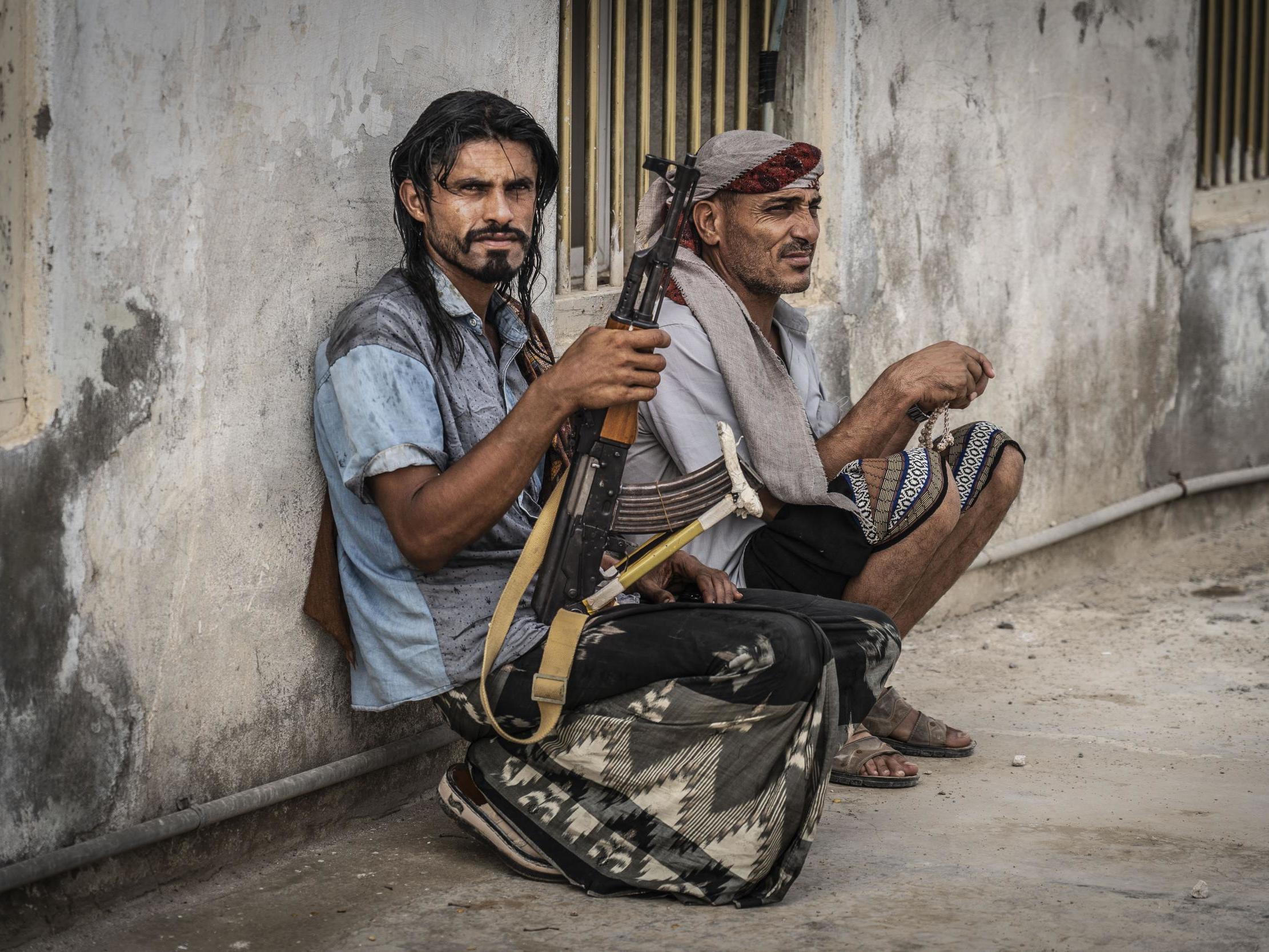
Your support helps us to tell the story
From reproductive rights to climate change to Big Tech, The Independent is on the ground when the story is developing. Whether it's investigating the financials of Elon Musk's pro-Trump PAC or producing our latest documentary, 'The A Word', which shines a light on the American women fighting for reproductive rights, we know how important it is to parse out the facts from the messaging.
At such a critical moment in US history, we need reporters on the ground. Your donation allows us to keep sending journalists to speak to both sides of the story.
The Independent is trusted by Americans across the entire political spectrum. And unlike many other quality news outlets, we choose not to lock Americans out of our reporting and analysis with paywalls. We believe quality journalism should be available to everyone, paid for by those who can afford it.
Your support makes all the difference.The Yemeni tribesmen, with weathered Kalashnikovs slung low across their backs like rucksacks, huddle when the news breaks that southern separatists have seized control of Aden, the country’s de facto capital.
From their makeshift base in Mahra, a southeastern Yemen province, the fighters – cheeks fat with qat – strategise about the Southern Transitional Council’s (STC) effective ousting of the recognised government.
The STC’s demand for an independent south and its daring takeover of Aden crippled the Yemeni government and ripped apart a Saudi Arabia-led coalition that it was supposed to be fighting with against the Houthi rebels.
The overthrow ricocheted into the eastern corners of Yemen in Mahra, a province which, although a part of historic South Yemen before the country was unified in 1990, has little love for the STC, demonstrating the dangerous faultlines splitting Yemen apart.
These Mahra tribesmen warn that a protracted STC offensive would not only trigger a fresh war between the north and south of the conflict-riddled country, but more worryingly, one within the south itself.
They talk of a war within a war within another war in a nation already in the grips of the world’s worst humanitarian crisis, where 13 million people are currently on the brink of famine.
“We think danger is coming to us,” Ali Salem al-Huraizi, a former deputy governor and border chief in Mahra, tells The Independent.
The controversial but powerful leader, with piercing, chatoyant eyes, is known as “the general” by loyalists who pen pop songs about him. He commands a legion of heavily armed Mahri men who see him as the last bulwark against the encroachment of Saudi Arabia into their province.
His critics, however, call him an anti-Gulf agitator and say he is backed by neighbouring Oman.
Huraizi’s followers in Mahra, alongside many others, believe in a united Yemen but have clashed with the UAE and more recently Saudi Arabia over their military presence in the country.
Like many Yemenis they also blame the UAE for the rise of the STC, whose forces were hosted, trained and armed by Abu Dhabi to fight the Houthis.
“We believe in one Yemen, so Mahra will have to defend itself,” Huraizi adds, gesturing to a line of bullet-pocked pick-up trucks frilled with RPGs and heavy machine guns.
“In the next few weeks we will train our guys to be ready.”
The scenes of quiet panic in Mahra underline the devastating complexity of Yemen, which has foiled so many past attempts by outsiders to control it.
The deeply divided society has been nicknamed the “new graveyard of empires”, winning it comparisons with those who have tried and failed to leash Afghanistan.
For southern Yemenis, it’s morphed into a joke that every four years there is a war in the south. Right now that is overdue.
“I expect the STC to try to take over provinces [east of Aden] like Abyan, Shabwah and they will keep marching east into the desert,” Huraizi continues grimly.
“They think they represent south Yemen – but they don’t. If they come here we will fight them. We are prepared.”
His prediction was eerily correct.
Just over a week after the seizure of Aden, separatist forces commandeered two more military camps in Abyan, a province adjacent to Aden.
Despite urgent pleas from Yemen’s recognised president Abedrabbo Mansour Hadi, Saudi Arabia and the UAE to withdraw, the STC delivered a statement to the UN insisting it “cannot risk the security of the southern people… by handing control of Aden over to the government.”
Although it attended talks in Jeddah and reluctantly withdrew from some state institutions following pressure from Riyadh, which it still professes to support, it refused to let go of key military positions.
On Thursday, its forces clashed with government troops in Shabwah province, further east, and at the same time it was reportedly holding meetings with tribal leaders in Hadramout, Yemen’s largest province, which is still further east of Shabwah and borders Mahra.
On Saturday a call for arms from other tribal sheikhs, not affiliated with Huraizi, was widely circulated on social media amid fears that STC forces were actually marching on Mahra already. The communique, shared by experts on Twitter, urged Mahra people to “mobilise and unite to repel all who invade” warning of an imminent “invasion” and STC sleeper cells within the province.
A new devastating multilayered war is apparently around the corner.
Yemen, as a whole, was originally plunged into conflict in 2015 when the Iran-backed Houthis swept control of the country, ousting President Hadi and sparking fears within the Gulf of the expansion of Iranian influence on their borders.
And so Saudi Arabia and the UAE, together with other Sunni allies, launched a devastating bombing campaign in March of the same year, which was supposed to be a quick fix to bring Hadi back.

As the war dragged on the UAE trained some 90,000 Yemenis, including those who recently took over Aden, to fight the Houthis as well as Yemen’s pernicious branch of al-Qaeda and Isis.
Four years on and nearly 100,000 people have been killed, while close to 13 million people have been pushed the brink of famine.
According to the United Nations, the worst outbreak of cholera in recorded history has raged through the country. Two-thirds of Yemenis rely on humanitarian aid to survive.
That said, in December the Houthis and the Yemeni government signed an UN-backed peace agreement in Stockholm that was supposed to be the breakthrough that would start with a joint withdrawal of troops from Hodeidah, Yemen’s most strategic port and supply lifeline.
In June, the UAE announced a drawdown of Emirati forces around Hodeidah as part of a unilateral “confidence-boosting measure” to kickstart the stalled peace process.
But since the anti-Houthi forces are now fighting one another, that appears to be somewhat redundant.
Meanwhile the Houthis are standing on the sidelines pointing at Aden as proof that Hadi, his Gulf backers and the separatists are unfit to rule.
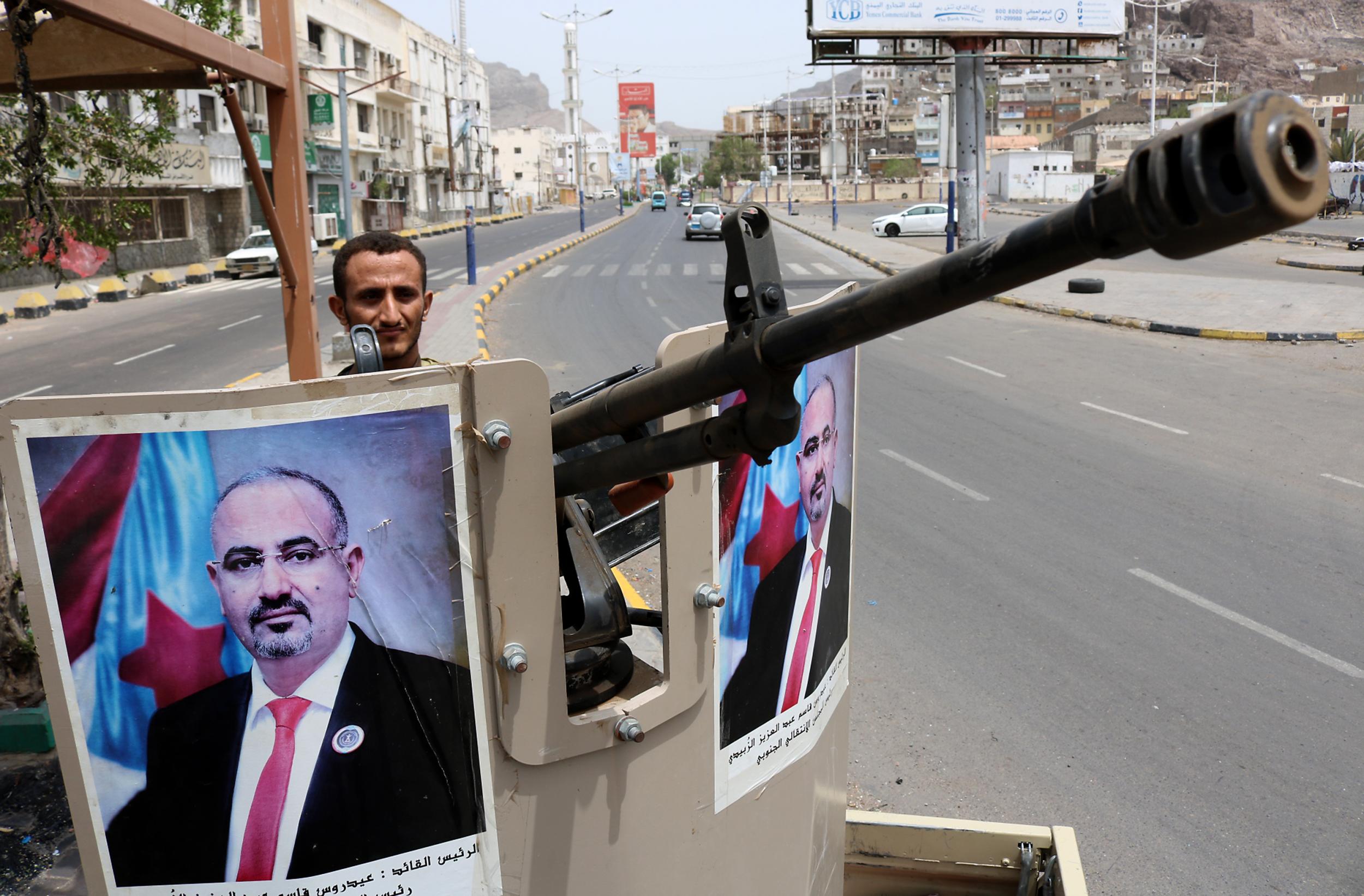
This latest deadly flare-up started three weeks ago, when the Houthis claimed they were behind a devastating drone and missile attack in Aden which killed dozens of separatist forces, including their most senior commander Munir Mahmoud al-Yafi, more commonly known as Abu Yamamah.
Many assumed there must have been a group helping the Houthis, given how far south and how devastating the attack had been.
The STC blamed Islah, a political party associated with the Muslim Brotherhood that is part of the coalition supporting President Hadi.
On 1 August, just hours after the attack, an STC leader, Naser al-Khubaji, marooned on a gilt sofa in an Abu Dhabi hotel, warned The Independent that the separatists would never let the killing of Abu Yamamah go.
“While everyone thinks the war in Yemen is between the Houthi rebels and the Yemeni government the real war, which is starting right now, is between the north and the south of the country,” he said.
At that point, a full 10 days before the bloody takeover of Aden, the war-drumming rhetoric fell flat against the backdrop of glittering chandeliers and elevator music, that seemed so far from the front lines of the Gulf’s poorest country.
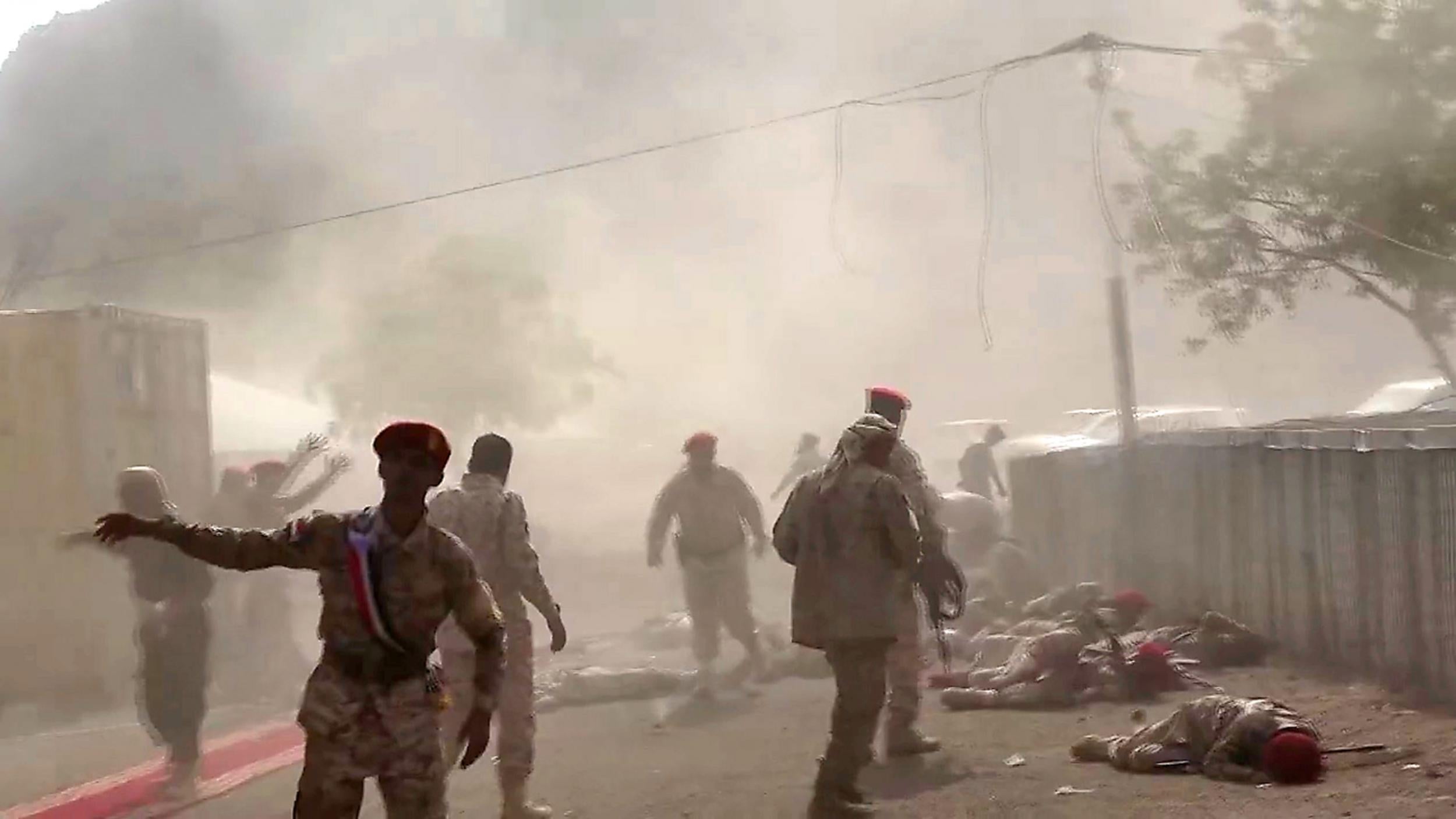
After all the STC’s leadership, which is almost entirely based in Abu Dhabi, had been threatening war for over a year and nothing had come of it.
“There will be a huge political and military step by the STC soon,” Khubaji had said, leaning forward with excitement.
“This step might be in coordination with the UAE,” he added.
Another southern leader, who asked to remain anonymous, met in a different Abu Dhabi cafe echoing the same words.
“The current war with the north will not last, but it will start other smaller wars,” he said.
“The UAE understands our case. We would actually prefer the Emirates remain there in the south for a bit, we know that like us they are not happy with the Islamists,” he added.
Abu Dhabi has repeatedly denied it is backing the STC’s bid for southern independence.
The current war with the north will not last, but it will start other wars
But experts have warned that Emirati support for the group, and its impressive unfurling of military infrastructure in the south, is a wedge in the seemingly unshakeable relationship with Saudi Arabia.
They believe the two countries have different priorities in Yemen: for the Saudis it is the Iran-backed Houthis that have repeatedly fired long-range missiles at their airports, for the UAE it is the Muslim Brotherhood.
“The threat of the Houthis for the UAE is not as existential as the threat of the Muslim brotherhood is,” says Ahmed Ali al-Mukhaini, a political researcher and former assistant secretary general for the Omani shura.
“As far as the UAE is concerned this is their biggest worry,” he adds.
Empowering the STC may have been part of safeguarding against a possible Islamist power-grab in the vacuum left by the ouster of the Houthis in the south.
But for Elisabeth Kendall, a Yemen expert at Pembroke College Oxford University who travels frequently to the south, the training of separatist groups had “unleashed a force” the UAE may not be able to control.
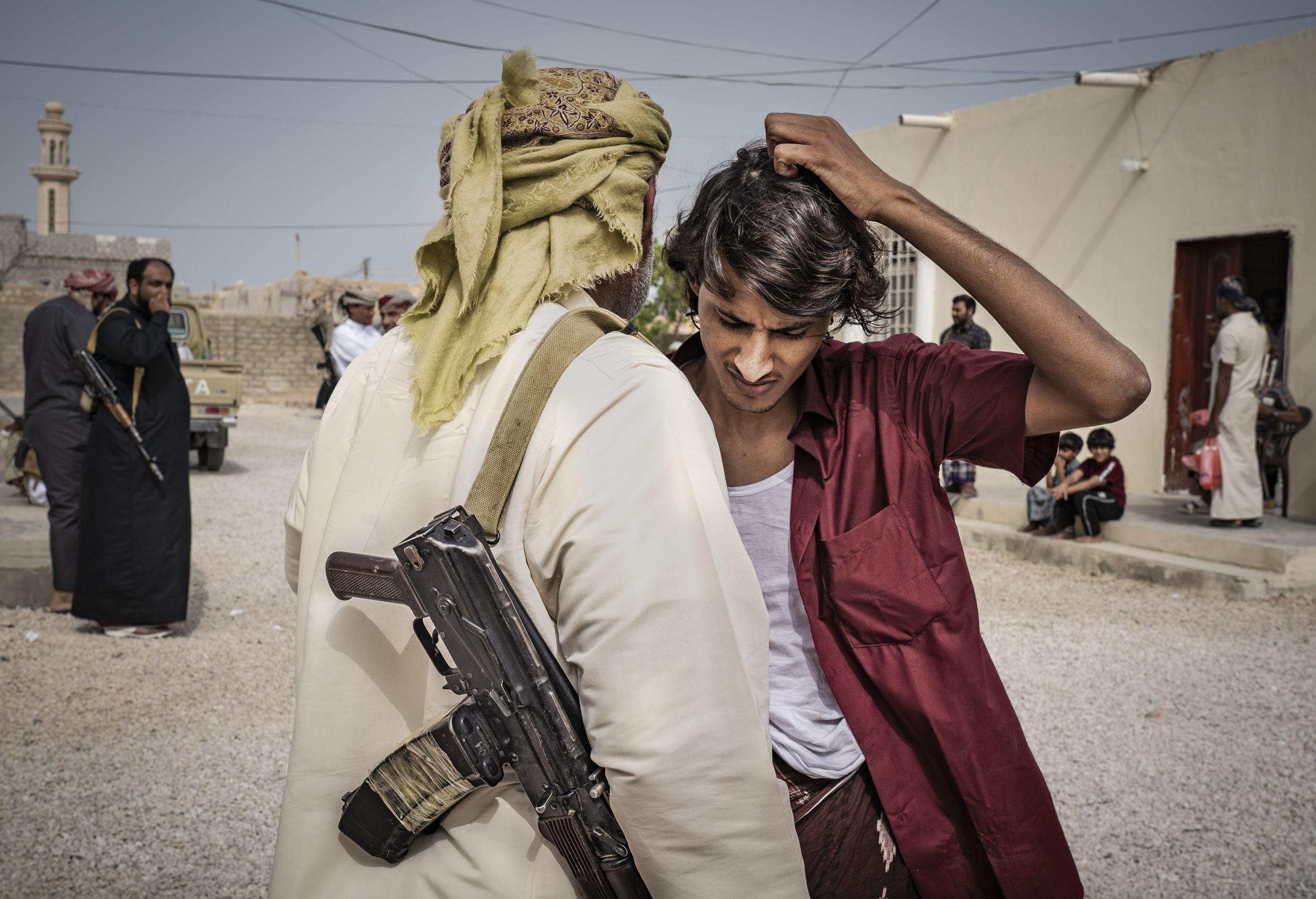
“The cards are in the Emiratis’ court. They are going to have to pull their own creation back from the desire for independence if we are going to have stability in this country,” she says.
Over the last year in different interviews with The Independent inside and outside of Yemen, senior Emirati commanders have mentioned their concerns about the Brotherhood in Yemen
They also say the training of local forces was essential to the wider counter-insurgency battle against groups like al-Qaeda. They claim the presence of well-trained local forces would also eventually allow the UAE to go home.
It is no secret that the UAE is no fan of Hadi and wishes him gone.
That will likely have caused some friction with Riyadh, as has deciding on what to do with the south of the country.
Hadi’s administration meanwhile has publicly accused the UAE of backing a separatist “coup”.
But Emirati officials vehemently rejected that accusation and reports of problems between them and Riyadh.
“There is no daylight between the UAE and Saudi Arabia when it comes to Yemen,” a senior UAE official tells The Independent on the condition of anonymity.
There is no daylight between the UAE and Saudi Arabia when it comes to Yemen
A source within the coalition adds: “The UAE and Saudi Arabia are completely aligned both on the ground and in our continued calls on all parties involved to come together to discuss a political settlement.
“The coalition is doing everything possible to provide Yemen with the ability to return to normality.”
To add to the confusion are other factions within Yemen.
In Muscat, Oman, there is an entirely different set of southern separatists who want an independent south Yemen but are against the STC because of its alleged Emirati connections.
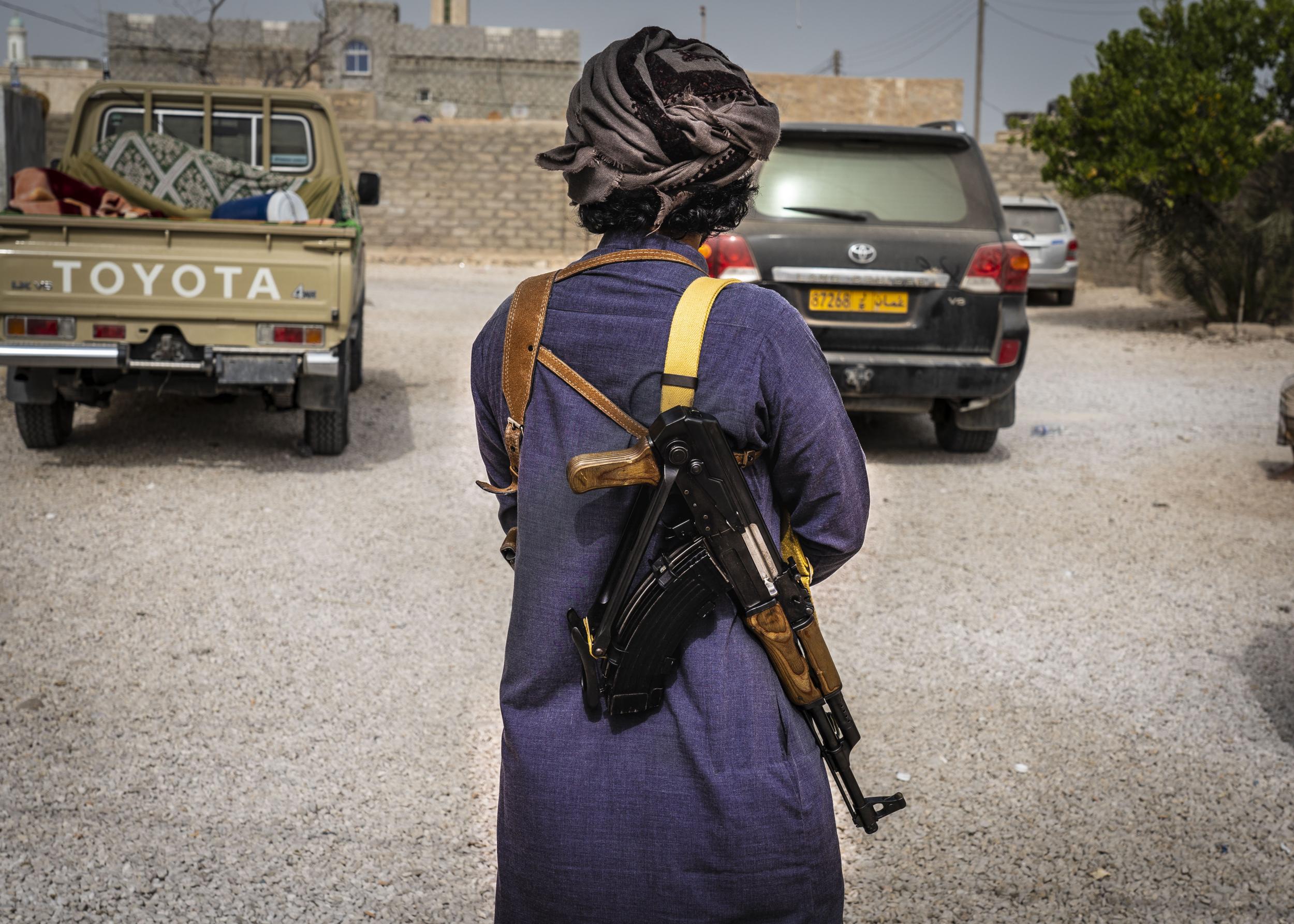
Speaking from a Muscat hotel, Fadi Hassan Barhom, head of the Revolutionary Movement for the South and whose father is a prominent southern separatist figure, describes the STC as “‘the tool of the UAE”.
“We are worried the south will become a theatre for bloodshed and the battleground for the Gulf’s and for everyone else’s interests,” he says.
Back in Mahra, that concern is repeated by the tribesmen who watch with growing alarm grainy footage of the deadly clashes in Aden on TV.
“We are keeping an eye on Aden, we are watching the reaction from the Yemenis,” Huraizi says, nodding at the screen.
“We know the battle will come here. And we are ready for it.”
Join our commenting forum
Join thought-provoking conversations, follow other Independent readers and see their replies
0Comments